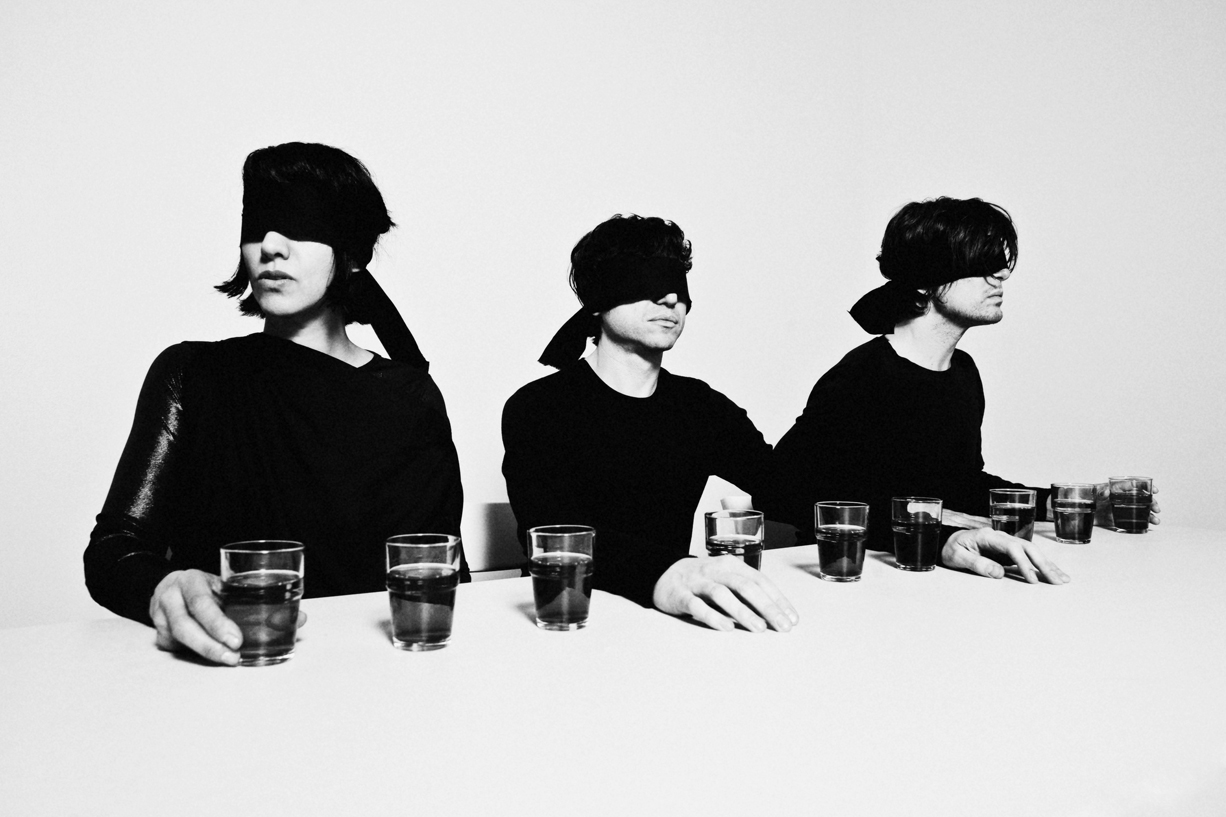Autolux guitarist Greg Edwards is well accustomed to the demands of recording your own music. In 1995, Edwards spent months recording what ended up being the band Failure‘s final album, Fantastic Planet — a sprawling alt-metal epic with a cinematic narrative.
Five years since the release of Future Perfect, Autolux’s full-length debut, the alt-rock trio only recently announced labels for its follow-up, titled Transit Transit (TBD Records in the US and ATP Recordings everywhere else). This time, though, Edwards says that he was a lot more comfortable waiting patiently.
For better or worse, fans of the Los Angeles trio will have to do the same until the yet-unannounced release date.
In 2000, Carla Azar and bassist/vocalist Eugene Goreshter, fresh from scoring Dariel Fo’s play Accidental Death of an Anarchist, invited Edwards to start what eventually became Autolux. This new working relationship reignited Edwards’ motivation and sense of direction after the demise of Failure, but still, he says that it took the band an entire year to write its first song.
“We wrote a lot of ideas,” he explains, “and we pursued them to a certain point, but it really wasn’t until we hit on the song ‘Turnstile Blues’ and we saw that through to the end that we saw what the heart of Autolux was.” The band shuttled seamlessly between space rock, psychedelia, and shoegaze and developed a penchant for honing effects-borne noise into pop hooks.
With the help of producer T-Bone Burnett (Allison Krause and Robert Plant, Oh Brother, Where Art Thou? soundtrack), whom Edwards insists has the perfect sensibilities for Autolux, Future Perfect sounds like nothing else. Arguably a classic album, it possesses a sonic space with its own unique topography, flora, and fauna.
“That’s the whole game to me,” Edwards says, “making each album its own complete world. Maybe to my detriment, or to the band’s detriment, I tend to prioritize that before a song. Having a strong mood and emotional resonance — that has to come first before I even want to work on something and see it through to a song.”
Given its roundabout writing process, it’s doubtful that Autolux could cover the same ground on Transit Transit if it tried.
Prior to writing, Goreshter, Azar, and Edwards establish what Edwards refers to as “aesthetic-controlling ideas” in order to generally align their styles. All three members are film and visual-art enthusiasts, and their tastes outside of music often contribute to the band’s sound.
Musically, however, they prefer to stab in the dark for as long as it takes to find the right sound.
“It’s easier to know what you don’t like,” Edwards says, “and in doing that, you keep cutting away the block. And eventually, you look and there’s a shape that you do want. But if you’re offensively going for that shape, then you never get there.”

